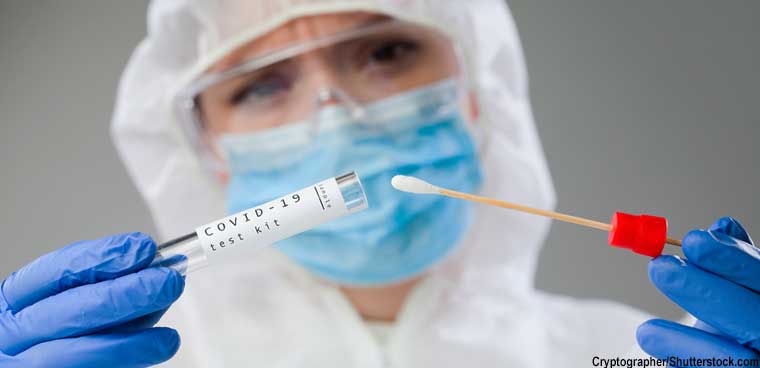White House says agencies will pay for COVID tests as needed for feds

Under a new COVID prevention regime, civilian federal employees will have to either attest to their vaccination status or get regular tests. The federal government will organize and pay for testing for feds.

During a press briefing on Friday, White House Principal Deputy White House Press Secretary Karine Jean-Pierre gave more details about how the administration's new vaccination and testing requirements for federal employees and onsite contractors will work.
Agencies will foot the bill for feds who are unvaccinated or don't attest to their vaccination status, she said.
The new system, announced Thursday, gives federal employees a choice to either attest to their vaccination status or follow protocols including regular testing.
Agencies have been instructed to establish programs to test feds and onsite contractors who either are not vaccinated or don't provide vaccination information to the agency. They'll have to be tested either weekly or twice-weekly.
Agencies will cover the cost of regular testing for feds in that category, Jean-Pierre said. They'll also be in charge of implementing these new changes.
"Agencies are going to be implementing this program themselves," she said. "So they'll be in charge of how that moves forward, and so that's kind of how that's going to be dispersed."
It is still unclear what timeline agencies, feds and onsite contractors will be under to comply with the new requirements. Guidance implementing the order also doesn't give specifics on what consequences anyone who doesn't comply might face.
Legal experts have also raised questions about complications the new requirements might raise in labor-management relations by violating collective bargaining agreements with federal employee unions, in addition to raising questions about privacy and accommodations for employees who are unvaccinated.
The announcement has sparked mixed responses.
Bob Corsi, the president of the Senior Executives Association, a nonprofit professional association for career federal executives, released a statement prior to the announcement saying that SES "supports the Administration in considering vaccine requirements for federal employees."
Others have concerns on the impact of the new policy on existing union contracts and workplace arrangements.
"We have a lot of questions about how this policy will be implemented and how employee rights and privacy will be protected," said the national president of the National Treasury Employees Union, Tony Reardon, in a statement. "We will work to ensure employees are treated fairly and this protocol does not create an undue burden on them."
The American Federation of Government Employees also released a statement from national president Everett Kelley saying "we expect that the particulars of any changes to working conditions, including those related to COVID-19 vaccines and associated protocols, be properly negotiated with our bargaining units prior to implementation."
Guidance implementing these changes instructs agencies to satisfy their collective bargaining obligations for their workplace safety plans.
House Committee on Oversight and Reform ranking Member James Comer (R-Ky.) released a statement calling the move a "pandemic power grab" that "runs contrary to our nation's cherished value of individual liberty."



